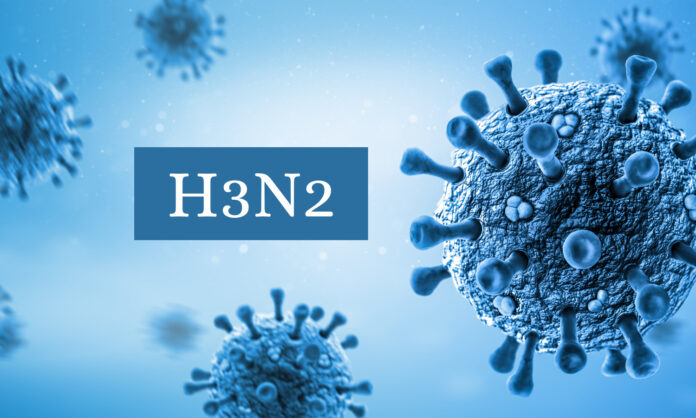Delhi is witnessing a sharp rise in cases of the H3N2 influenza virus, a seasonal flu strain that has prompted health alerts across the city. Hospitals are reporting more patients with prolonged flu-like symptoms, raising concerns among doctors and public health authorities.
What Exactly is H3N2?
H3N2 is a subtype of the influenza A virus, which the World Health Organization (WHO) has linked to recurring seasonal flu outbreaks worldwide.
The virus spreads easily through:
-
Respiratory droplets released when an infected person coughs, sneezes, or speaks.
-
Close contact with infected individuals.
-
Fomite transmission indirect spread via contaminated surfaces like doorknobs, railings, or other shared objects.
Symptoms to Watch Out For
Doctors caution that H3N2 symptoms may appear similar to common flu but can last longer and feel more intense. Common signs include:
-
Sudden high fever
-
Persistent cough and sore throat
-
Runny or blocked nose
-
Body aches and muscle pain
-
Headaches and fatigue that may last several days
-
In severe cases, breathing difficulties
Recovery Period and Treatment
H3N2 symptoms usually take 7–10 days to subside. Most patients recover with proper rest, hydration, and medication prescribed by doctors. However, medical experts strongly discourage self-medication, especially the unnecessary use of antibiotics. Hospitalisation may be required for high-risk groups such as children, senior citizens, and those with chronic conditions.
Precautions to Reduce Risk
Health authorities recommend simple but effective measures to curb the spread:
-
Wear masks in crowded or public spaces.
-
Wash hands regularly with soap or sanitiser.
-
Cover your mouth and nose while coughing or sneezing.
-
Stay home when unwell to prevent spreading the infection.
-
Eat a nutritious diet and drink warm water or milk to boost immunity.
Why the Outbreak Matters
Doctors note that even after the fever subsides, many patients experience lingering cough and fatigue, slowing down recovery. This prolonged impact has contributed to increased absenteeism in schools and workplaces, underlining the need for vigilance.
H3N2 is not a new virus, but its current surge in Delhi highlights the importance of early detection and preventive care. Experts emphasise masking, good hygiene, proper nutrition, and timely medical consultation as the best safeguards.








